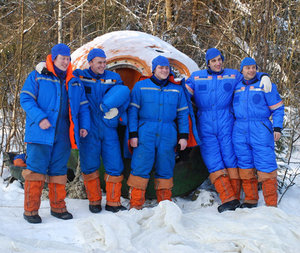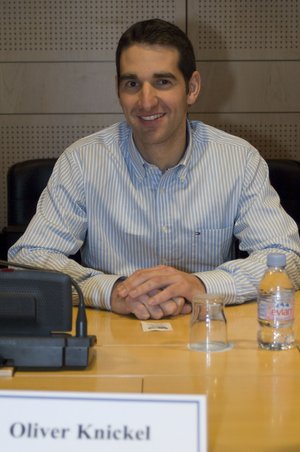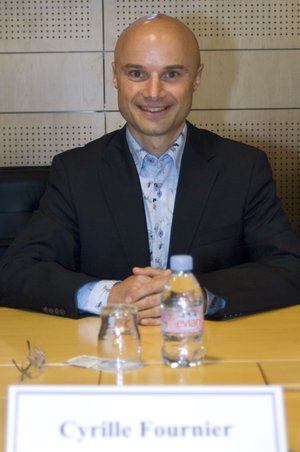Mars500 diary: start of a new cycle
As the crew completes their sixth week inside the isolation facility at the Institute of Biomedical Problems in Moscow, Russia, ESA-selected Mars500 crewmember Cyrille Fournier reports back on their latest activities.
Cyrille Fournier writes:
As Oliver wrote last week, 'tempus fugit'… And this is true, time passes by, le temps file, Zeit flieht, время летит, tiempo vuela, il tempo vola, etc…! We have already finished the first of our three 35-day cycles and this week we started the second one.
In practice it doesn't dramatically change our timetable. We just rotate activities between the groups we're assigned to. It mainly concerns our physical activities. As Oliver explained last week, he traded in the three-hour low-frequency stimulation for the 20-minute high frequency stimulation.
Those terms may sound completely awkward to you, but it's just like the commercials we sometimes see on TV, in which a 40-year-old, beautifully tanned, smiling body-builder is lying on a couch reading with five electrodes stuck on his abdominal and pectoral muscles, to train them while reading a book!
Well, we still have 65 days to see the change, but for the time being we are very far from the result we can expect by remembering this appealing commercial. Hope is on our side!
To come back to our physical exercises, Oliver is now suffering 20 minutes under the assault of this high-frequency stimulation, while I am now undergoing those three-hour low frequency stimulations. For the time being, I managed to keep away from it (probably keeping the best for the last cycle) and I train every day on an Austrian-designed trainer.

In the near future, this very well-conceived device will be used to improve the physical exercises that the cosmonauts and astronauts perform on the International Space Station to counteract the effect of weightlessness, but also on other possible missions (like on a mission to Mars, for instance!). We are testing it to check whether it needs to be modified, improved or reinforced, for example.
We still have to get used to our new activities and it takes some time to get familiar with the procedures. This is our main task for the week.
Among all the technical experiments we carried out over the last seven days; let me go into one in a bit more detail, as it seems to me very interesting and full of hope for the future. It is backed by ESA and proposed by a group of doctors and scientists from Belgium. As with previous experiments we have told you about, this one is related to the effect of confinement and isolation, but this time the focus is more on the physiological side of things.
We have all experienced how, on some occasions, because of weather, external causes or circumstances, our mood is affected. It appears that these factors may also influence our physiological activities. Our heart rhythm, our blood pressure, our veins, arteries or the state of some of our organs may be affected, reflecting how the brain and the body are very closely linked.

For this experiment, we have to perform an ultrasound scan on ourselves, just like pregnant women or certain patients go through. This ultrasound investigation 'reads' our organs and displays the result on a dedicated screen, live!
We have to scan our heart, our kidneys, our portal vein and three arteries located in the neck, behind the knee and in the groin area. All these measurements are recorded and sent to the doctors in charge of the experiment. They will correlate the changes in the physiological data with changes in our mood and psychological state. This will help them to understand how our body responds to environmental stress or to abnormal situations. They can understand the consequences of this unusual environment on our body.
This is not only of benefit to space travellers, but also to people on Earth who will be undergoing, willingly or unwillingly, tense or stressful events. I am thinking about people working in a closed environment, such as miners, boat crews or, more dramatically, people stuck in a closed space after an accident, such as in a building or a tunnel. In these last instances, the (search and) rescue teams may then have a more precise and detailed idea about how to cope with the situation once they find the group and what circumstances they will be facing, thus adapting their first aid.
On another subject, on that is less scientific but more practical and for sure important. I would like to write a few words about hygiene! Yes, personal daily hygiene. You could think “what is very special concerning their hygiene in their module?” Well, I have to say it is special in a way that… to save water and electricity, there's no shower in our space module!
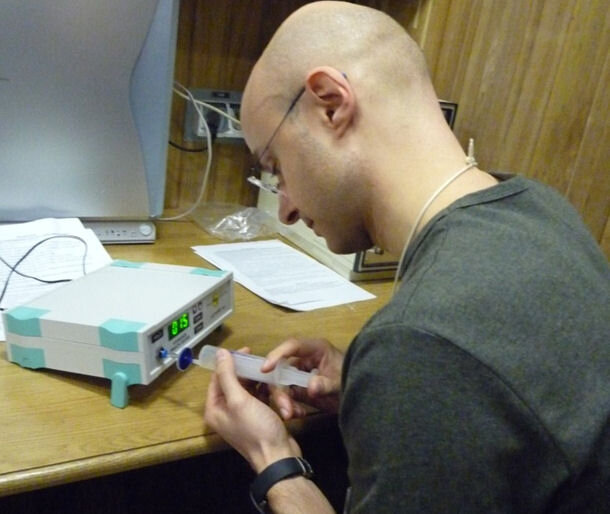
No need to worry though, as I can hear from here some shouting and other expressions of surprise (for the least!). Our module is equipped with three toilets, each includes a sink. “But this is not enough!” you could say, and you would be absolutely right!
However, this simple equipment is very useful for washing at least arms and heads with cold water. It's a good start, but we do not stop there! For all the rest of the body, we are not using water and soap but rather wet towels just like some of you are (or have been) using for your babies.
You could argue that these towels are not cleaning completely. Well, I have to say that surprisingly, we all do feel completely neat and clean, despite the fact that we haven’t had a shower for weeks. I started to think about it by saying to myself that maybe we are used to associating cleanliness to the natural sensation of being wet and that we cannot imagine ourselves being clean without water, under a shower or in a bath.
I have the feeling now that this is not always true and reciprocally also: it is not because we are wet that we are actually and automatically completely clean. I leave you thinking about this and would be curious about your reactions…
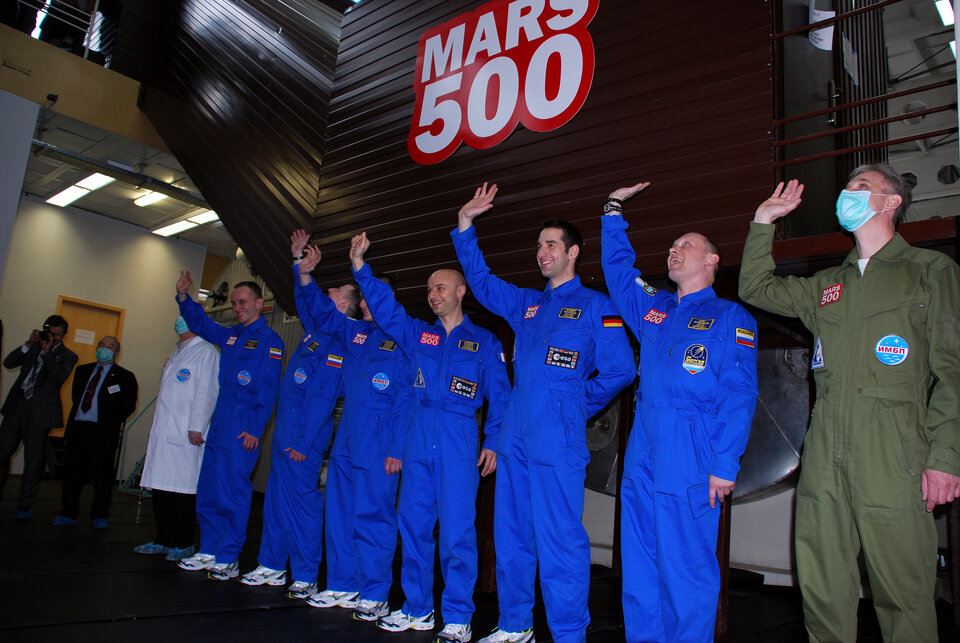
Oh, just a last word… Last week, I was very inspired by Oliver who planted a little bulb a few weeks ago and offered a wonderful blossoming flower to his girlfriend via the ESA website.
Well, I didn't bring a bulb in the module with me but it gave me an idea for my girlfriend. I finally found a white sheet of paper and some colouring pencils and decided to fully express my artistic spirit. I came up with what I consider a very nice flower.
What do you think? Well, last week, Oliver grew a flower for his girlfriend; this week I drew one for mine… Does one letter matter that much? :-) (Oh, I can see the psychologists already working on my drawing: what does it mean, how I consider myself and my future!)
Anyway, have a good week to all of you, keep smiling and we’ll write to you again next week!





